EU strategic autonomy: Easier said than done
Academic Ye Shengzhou explains why French President Emmanuel Macron has been aggressively pushing for EU strategic autonomy, more so after his visit to China. But even if France puts its weight behind the concept, the path of achieving strategic autonomy is paved with obstacles.
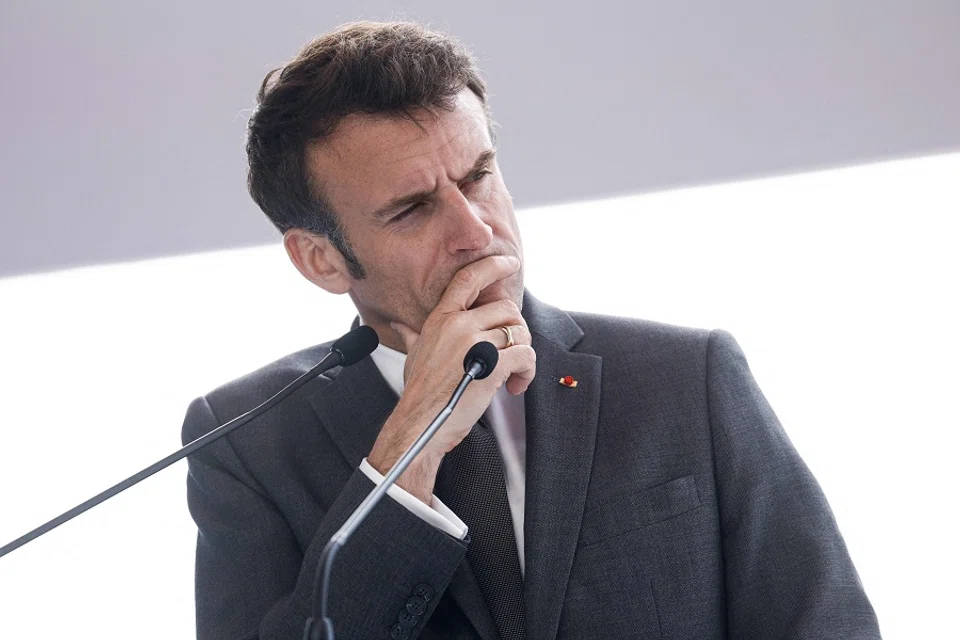
In an interview held during his plane ride back to France after his China trip, French President Emmanuel Macron reiterated that Europe should build "strategic autonomy" to avoid becoming a "vassal" of the US and China, and instead become a "third superpower" apart from China and the US. During his subsequent visit to the Netherlands, he again stressed on strategic autonomy for Europe, and repeated that "being an ally does not mean being a vassal ... [or] mean that we don't have the right to think for ourselves".
The European Union (EU)'s pursuit of strategic autonomy is nothing new, as seen from its "A Global Strategy for the European Union's Foreign and Security Policy" document released in 2016. This is not the first time that Macron is advocating "strategic autonomy" for Europe either: he proposed the concept of "European sovereignty" in 2017, and urged the creation of a new "European political community" in 2022.
Even so, there were strong reactions in four main camps in the West...
A divided West
Against the backdrop of the Russia-Ukraine war and China-US rivalry, Macron's comments about EU strategic autonomy after his China visit were in the context of Europe neither wanting to be "caught up in a disordering of the world and crises that aren't ours" nor being a "follower" of the US or China. Even so, there were strong reactions in four main camps in the West:
One, those strongly supporting Macron's stance. On 11 April, European Council President Charles Michel asserted that Macron's position was "not isolated" among EU leaders. These "supporters" manage their interactions with China with a roughly 40/60 rule, i.e., a relationship that is 40% competitive and 60% cooperative.
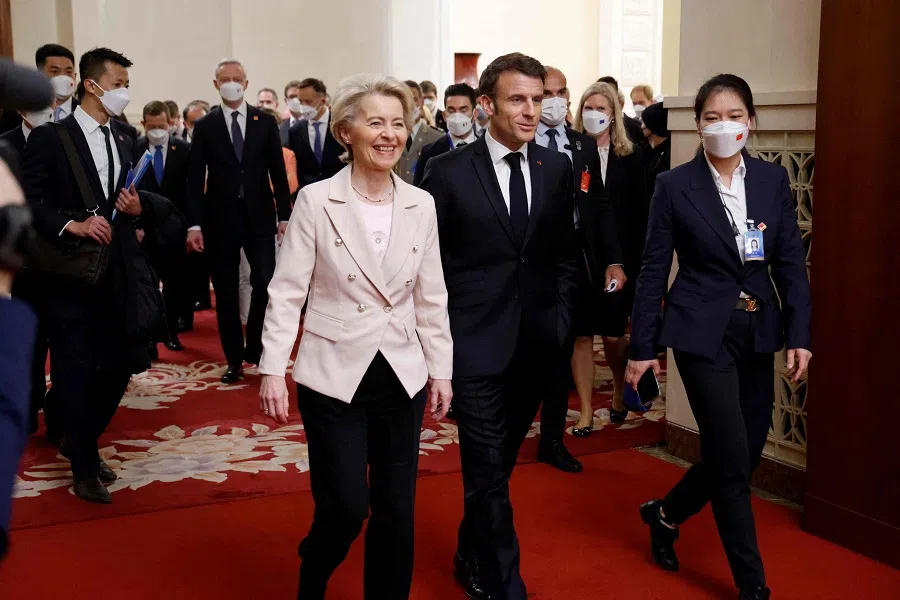
Two, those who partially agree with Macron. At the 18th April European Parliament plenary session, European Commission President Ursula von der Leyen called for "our own distinct European approach" to China, while EU High Representative for Foreign Affairs and Security Policy Josep Borrell stressed, "We are in rival mode, but we have to keep talking with China." This camp handles their relations with China with a 60/40 rule (60% competition and 40% cooperation).
Three, those who partially disagree with Macron. On 16 April, German Finance Minister Christian Lindner said, "The idea of strategic autonomy of the European Union, I fear it's naive." Those who hold this position deal with China with a 70/30 rule (70% competition and 30% cooperation).
Four, those who strongly disagree with Macron. Czech Foreign Minister Jan Lipavsky said, "Strong transatlantic relations between Europe and the US are the foundation of our security." Marcin Przydacz, the foreign policy adviser to Polish President Andrzej Duda, asserted, "We believe that more America is needed in Europe... Today the United States is more of a guarantee of safety in Europe than France." US Senator Marco Rubio questioned if Macron was even speaking for Europe. This group navigates their relations with China with a 90/10 rule (90% competition and 10% cooperation).
Reasons for France's advocacy of strategic autonomy
Why does Macron keep harping on EU strategic autonomy?
First, Macron seeks a unique place in history. He has always been the driving force behind European integration and strategic autonomy. In March 2022, after the NATO, G7 and EU summits, he openly declared that Europe should be militarily less reliant on certain allies in order to gain greater strategic autonomy.
Following his re-election in April last year, Macron went all out to see through unfulfilled political goals. For instance, going against the tide of public opinion, he recently signed the controversial pension reform bill into law. With protests and strikes still ongoing, his actions demonstrate a politician's assertiveness.
Essentially, Macron's repeated advocacy for the EU's "strategic autonomy" is to compete with the US, the UK and Germany for dominance in Europe.

Second, France's tradition of foreign policy independence. Unlike US allies such as the UK, Japan and South Korea that follow the US's lead, France has been reluctant to do so. France's tradition of foreign policy independence is clearly seen in the actions of Charles de Gaulle, the first French president elected under the Fifth Republic. He withdrew France from NATO in 1966. Years later in 2003, then French President Jacques Chirac opposed the US-led invasion of Iraq in 2003 as it was carried out without the United Nations (UN) Security Council's authorisation.
Third, the primacy of France's national interests. After Brexit, Germany and France became the undisputed "dual engines" of the EU. When Angela Merkel was still in power, Germany had an even greater say in Europe and the world - for instance, it was the only other major country, apart from the P5 countries, that was a signatory to the Iran nuclear deal in 2015.
After Merkel left office, German Chancellor Olaf Scholz took over, presiding over a fragile three-party coalition in which the German foreign minister, finance minister and economy minister are from either the Green Party or the Free Democratic Party, and who often sing a different tune from the chancellor's office.
With the EU left leaderless, France, as the only legal possessor of nuclear weapons, seized the once-in-50-years opportunity to strengthen its control over Europe and the EU to become the "big brother" of the region. Essentially, Macron's repeated advocacy for the EU's "strategic autonomy" is to compete with the US, the UK and Germany for dominance in Europe.
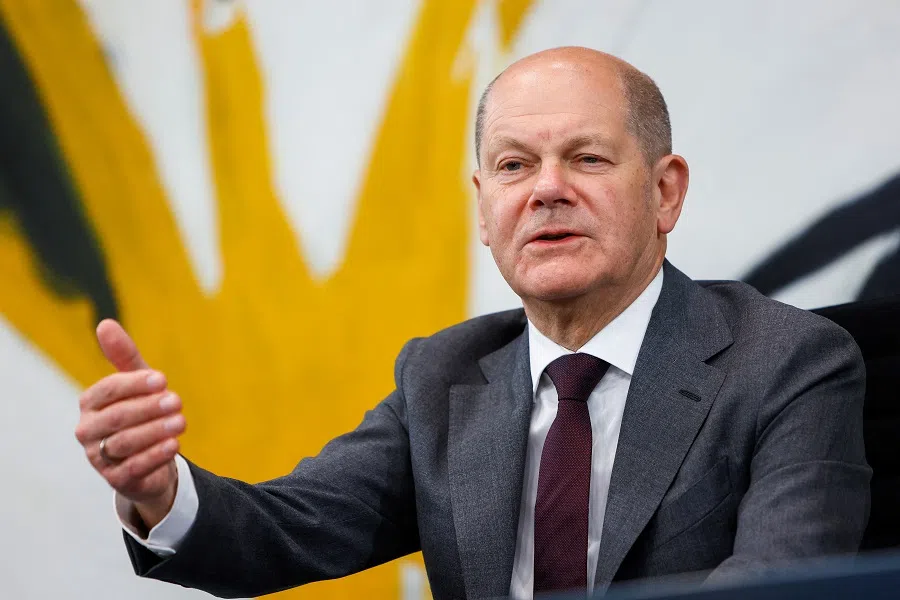
Fourth, European and American interests do not overlap. For example, when the US enacted the Inflation Reduction Act and the CHIPS and Science Act, it frequently used financial sanctions to weaponise the US dollar, interfering with the autonomy of European businesses and undermining the sovereignty of European countries. This made Macron publicly warn against the "extraterritoriality of the US dollar".
Also, climate change is a key issue in Europe in which the EU can take the moral high ground and where there are massive economic interests tied to a trillion-dollar carbon trading market. But the Republicans in the US were never enthusiastic about climate change, with then US President Donald Trump even extricating the US from the Paris Agreement, making it difficult for the US Congress to pass relevant bills.
The EU has become more reliant on the US in terms of defence, the economy, and energy, drifting further and further away from its strategic autonomy goal.
A tall order to implement strategic autonomy
Ultimately, achieving EU strategic autonomy is easier said than done because of the following reasons:
One, the US's desire to control Europe is getting stronger. Any US president would subconsciously adopt an "America First" policy stance. But Trump went to the extreme, doggedly alienating America's friends and allies. As a result, in exasperation, Macron remarked that NATO was experiencing "brain death" while Merkel considered the proposal of creating a European army.
US President Joe Biden's top priorities after taking office have been to remove China's threat to US hegemony, swiftly repair US alliances and unite with allies against China. On 26 September 2022, the Nord Stream 1 and Nord Stream 2 natural gas pipelines were mysteriously bombed, but Denmark, Sweden, Germany and the EU were tight-lipped about the investigations.
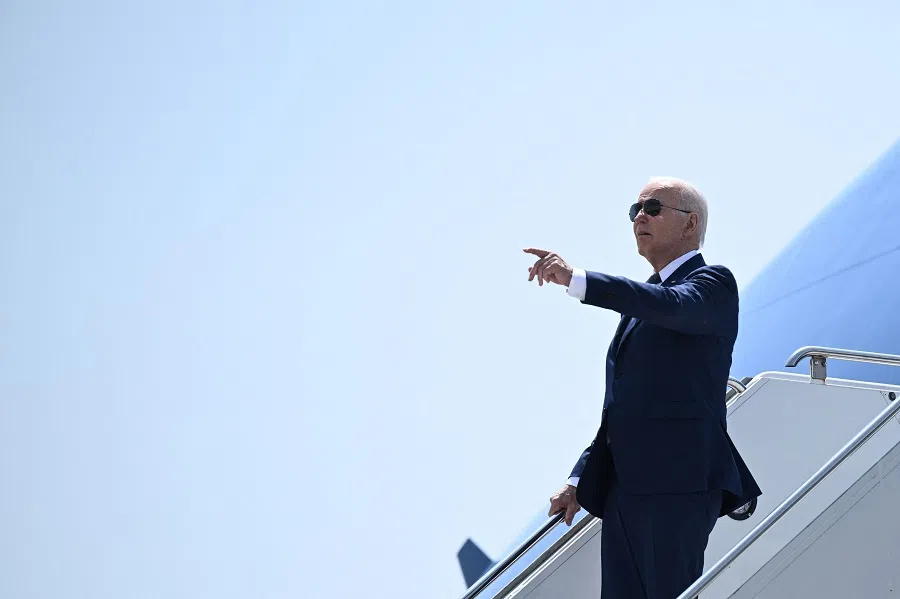
Two, Europe is getting more reliant on the US. Russia's invasion of Ukraine has changed the geopolitical landscape of Europe since the fall of the Soviet Union, promoted the unity of the EU and NATO, and solidified the US's dominant position. The EU has become more reliant on the US in terms of defence, the economy, and energy, drifting further and further away from its strategic autonomy goal. Security threats from Russia now take precedence over any other considerations of Europe, with long-time neutral states such as Finland recently joining and Sweden applying to join NATO.
Economic and trade relations between the US and Europe, on the other hand, have warmed, as each of them replaced China to become the other's largest trading partner in 2022.
The British-French Saint-Malo declaration signed in 1998 to create a strengthened European armed forces that could react rapidly to new risks materialised 24 years later in the approval of the Strategic Compass in March 2022. On 10 January, the third joint declaration on EU-NATO cooperation was signed, which recognised NATO as "the foundation of collective defence for its Allies and essential for Euro Atlantic security" for the first time.
Statistics show that the US and Europe's respective economic and trade ties with China have significantly cooled, with total imports and exports decreasing by double digits. Economic and trade relations between the US and Europe, on the other hand, have warmed, as each of them replaced China to become the other's largest trading partner in 2022.
Three, there are too many disagreements and fissures within the EU. During the Second Gulf War (Iraq War), then US Defence Secretary Donald Rumsfeld proposed the concept of an "old Europe" and a "new Europe". As a result of historical factors, Central and Eastern Europe have developed a deep-rooted sense of "Russophobia" (fear of Russia), with Poland and the Baltic states even developing extreme anti-Russia sentiments. As a result, they are strongly motivated to follow the US for security, and increasingly oppose EU strategic autonomy.
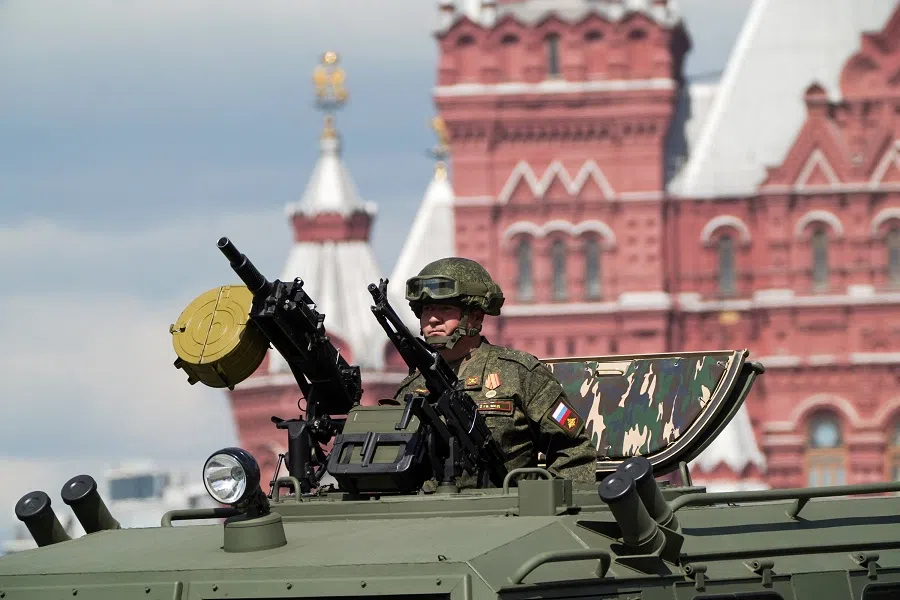
Western European countries are also divided; in September 2021, the US, the UK and Australia "backstabbed" France, with Australia scrapping a huge submarine deal in favour of nuclear-powered submarines from the US. Even within France, the French people are way more concerned about domestic issues such as people's livelihood and the economy than foreign affairs.
In addition, the EU's common monetary policy and messy fiscal policy, as well as its member states' right to veto the EU's foreign policy - both huge institutional obstacles - have made it incredibly difficult to reach a consensus, let alone achieve European integration.
Four, China-US and China-Europe relations have yet to take their final shape. Looking at it longitudinally, US hegemony has declined, but laterally speaking, its relative strength is still marked. China's comprehensive national power has yet to surpass that of the US after two decades. Moreover, while China is closing the gap in terms of hard power, it is difficult for it to make meaningful gains in terms of soft power and smart power.

Most countries around the world today choose to rely on the US for security and China for economic development, with few of them wanting to decouple from China economically. Germany, France and the EU have said numerous times that they will not decouple from China because this does not align with their interests.
China has successfully brokered the Saudi Arabia-Iran rapprochement and is attempting to mediate the more difficult Russia-Ukraine war. If China succeeds, it will gain Europe's trust and have the CAI signed in exchange.
Mediating the Russia-Ukraine war
There is still room for manoeuvre in China-EU relations - if, for instance, China makes a bad move and acts prematurely or over-aggressively, it may lead to a surge of anti-China sentiment in Europe and push Europe into the US's embrace. Seeing when the EU-China Comprehensive Agreement on Investment (CAI), which has been kept in cold storage by the European Parliament for two years, takes effect will be a good gauge of EU strategic autonomy.
China has successfully brokered the Saudi Arabia-Iran rapprochement and is attempting to mediate the more difficult Russia-Ukraine war. If China succeeds, it will gain Europe's trust and have the CAI signed in exchange. On the other hand, it is in the US's interest if the Russia-Ukraine war drags on for another year and a half or two until the US presidential elections in November 2024, during which Russia would be massively weakened and Europe trapped in a quagmire.
Certainly, European interests continue to be hit and Europe continues to suffer greater losses as the war drags on; both national strength and public opinion are wearing thin. The 2024 US presidential elections will likely be a rematch between old rivals Biden and Trump. Regardless of the victor, the incoming US president will advocate peace, which could accelerate the end of the war in Ukraine. This leaves China about a year to mediate the Russia-Ukraine war.
This article was first published in Lianhe Zaobao as "欧洲战略自主知易行难".
Related: Chinese academics: China-Russia relations are reaching new heights | Chinese commentator: Macron wants to be different, but does he understand China and the world? | Macron's visit: China making a tear in the 'iron curtain' drawn by the US | Divide and conquer: Beijing's biased treatment of France and EU could backfire
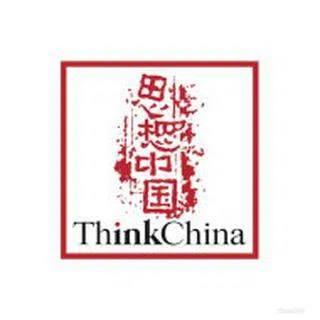


![[Big read] When the Arctic opens, what happens to Singapore?](https://cassette.sphdigital.com.sg/image/thinkchina/da65edebca34645c711c55e83e9877109b3c53847ebb1305573974651df1d13a)
![[Video] George Yeo: America’s deep pain — and why China won’t colonise](https://cassette.sphdigital.com.sg/image/thinkchina/15083e45d96c12390bdea6af2daf19fd9fcd875aa44a0f92796f34e3dad561cc)
